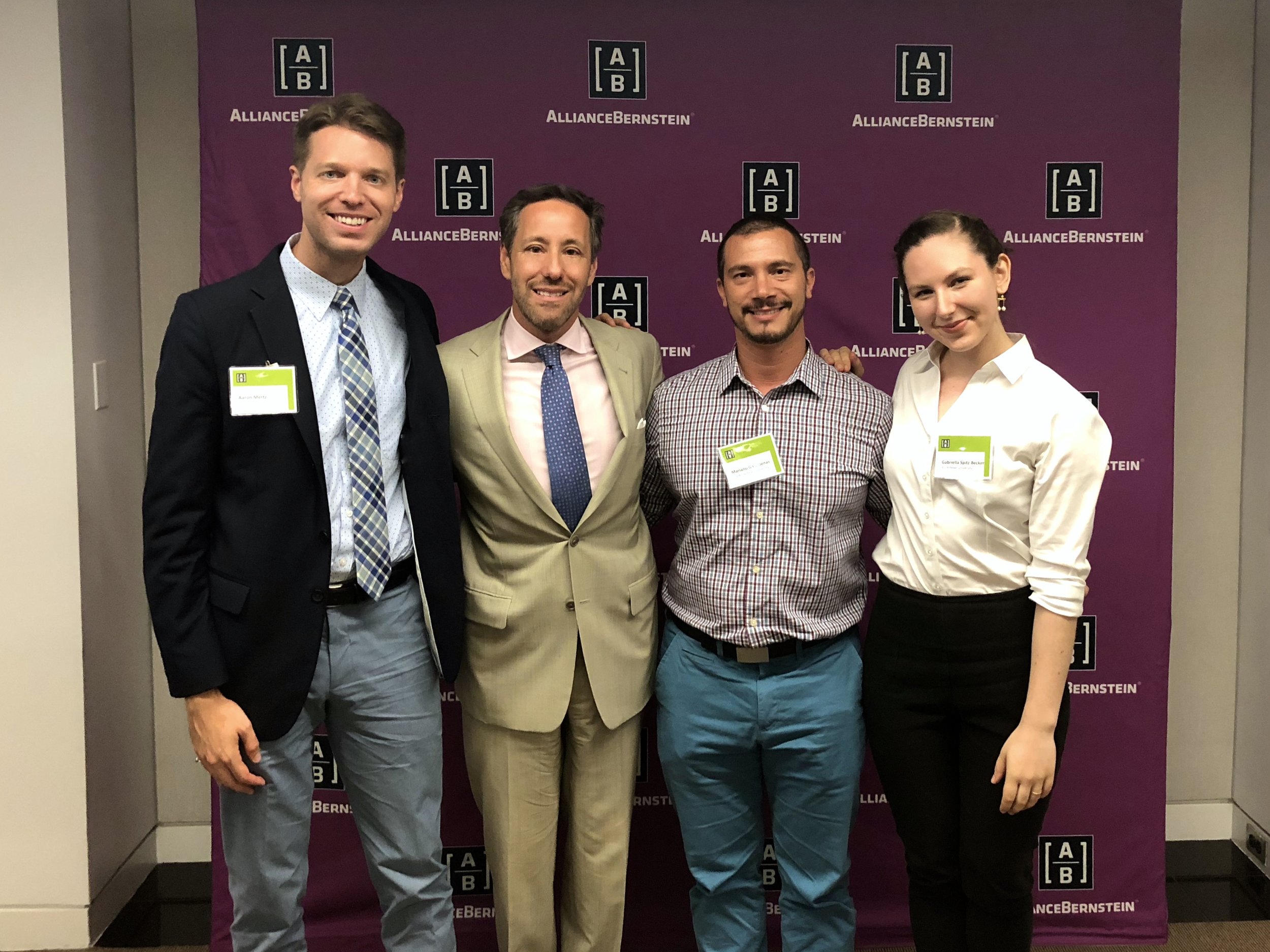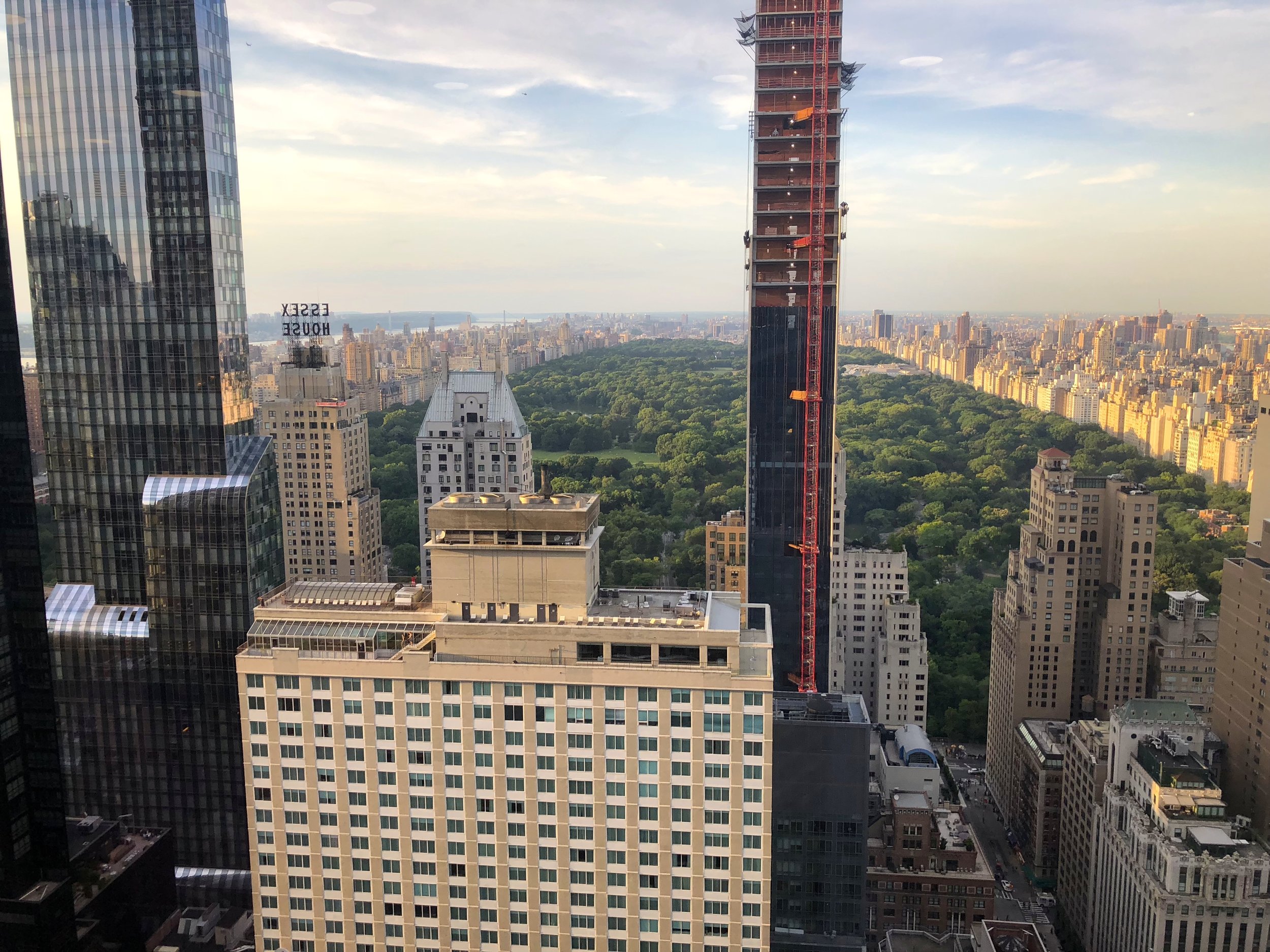Panelists Dr. Karissa Sanbonmatsu, Dr. Manu Platt, Dr. Ann Kwong, with moderator Dr. William Cafferty, and panelists Dr. Elena Long and Dr. Zhirong Bao.
PRISM’s third annual Out in Science panel discussion brought together six accomplished scientists from the LGBTQ+ community with junior scientists from the New York area. The panelists discussed their career experiences, offering perspective and advice on how to build a successful career and make science a better place for LGBTQ+ people.
The panel was comprised of scientists in academic positions, industry, and affiliated with national labs. The panelists also represented several ethnicities and different countries of origin, and identified as trans, gay, and lesbian. This gave an unusually diverse and informative array of perspectives and demonstrated that there were multiple ways to be successful in science and multiple ways to approach one’s LGBTQ+ identity.
Several panelists explained that ethnicity or gender is always the first part of their identity that people are aware of, and as such, they spend more of their time navigating the biases that others hold about these aspects of their identity than about their LGBTQ+ identity. This was observation was referenced by the people of color on the panel, Manu Platt, PhD, Associate Professor of Biomedical Engineering at Georgia Institute of Technology, Ann Kwong, PhD, Founder and CEO of Trek Therapeutics, and Zhirong Bao, Professor at Memorial Sloan Kettering Cancer Center. For some panelists, the topic of sexual orientation rarely comes up in their professional lives, whereas other panelists spent a significant amount of time evaluating whether it was ok to come out to colleagues. This illustrates the additional cognitive tax that minorities must pay to evaluate how to navigate everyday situations, and how this differs between people.
Dr. Platt responding to a question
Two trans panelists told of the significant discrimination toward this group, but also gave advice on how to improve the work environment. Both Karissa Sanbonmatsu, PhD, a Principal Investigator at Los Alamos National labs and Elena Long, PhD, Assistant Professor of Physics at the University of New Hampshire have led initiatives to train their colleagues about how to support LGBTQ+ scientists and especially avoid worst-case scenarios that could cause mental harm to these people. Professor Long has coauthored a guide for university departments (that can be found at https://lgbtphysicists.org) with specific recommendations for departments, hiring committees, classroom teachers, mentors, and administrators.
The panelists described the climate for trans people as similar to the experience of gay and lesbian people in 80s when outright hostility and discrimination was common. Even within academic environments, which are often thought of as progressive, the majority of people remain uneducated and often unwelcoming to trans people. Institutional hurdles to transitioning and unprepared advisors and administrators can levy unnecessary difficulties. The panelists advised young trans scientists to reach out to others for advice and assured them that there were people who had dealt with similar challenges.
Some questions asked by the audience or moderator William Cafferty, PhD, Associate Professor of Neurology at Yale University elicited very different responses from the panelists. One such question was about when to come out in the workplace. Dr. Kwong advised bringing it up after a job offer has been made, a time when the scientist has the greatest power during the interview process. Other panelists described including LGBTQ+ activities on their resume or CV, ensuring that the hiring committee is aware throughout the entire process. Two panelists said they do not bring it up in a professional context, but only with colleagues they are close two. Another controversial topic was the idea of whether LGBTQ+ people should feel an obligation to be out and active in promoting LGBTQ+ scientists. Some panelists felt an obligation to do so while others emphasized that it is a personal decision and no one should feel obligated. The panelists’ responses underscore the idea that coming out is a personal decision that everyone makes for themselves.
Dr. Kwong explaining her approach to job interviews
Audience members expressed gratitude to the panelists for their thoughtful responses to questions and openness to be role models for the next generation of scientists. Many of the panelists did not have LGBTQ+ scientist role models as they were starting their career. The PRISM board thanks the panelists, moderator, and audience members for an excellent panel discussion. Watch for information next summer about the 4th annual Out In Science panel at Rockefeller University.
To watch a video recording of the panel, please request the password by emailing prism@rockefeller.edu.









